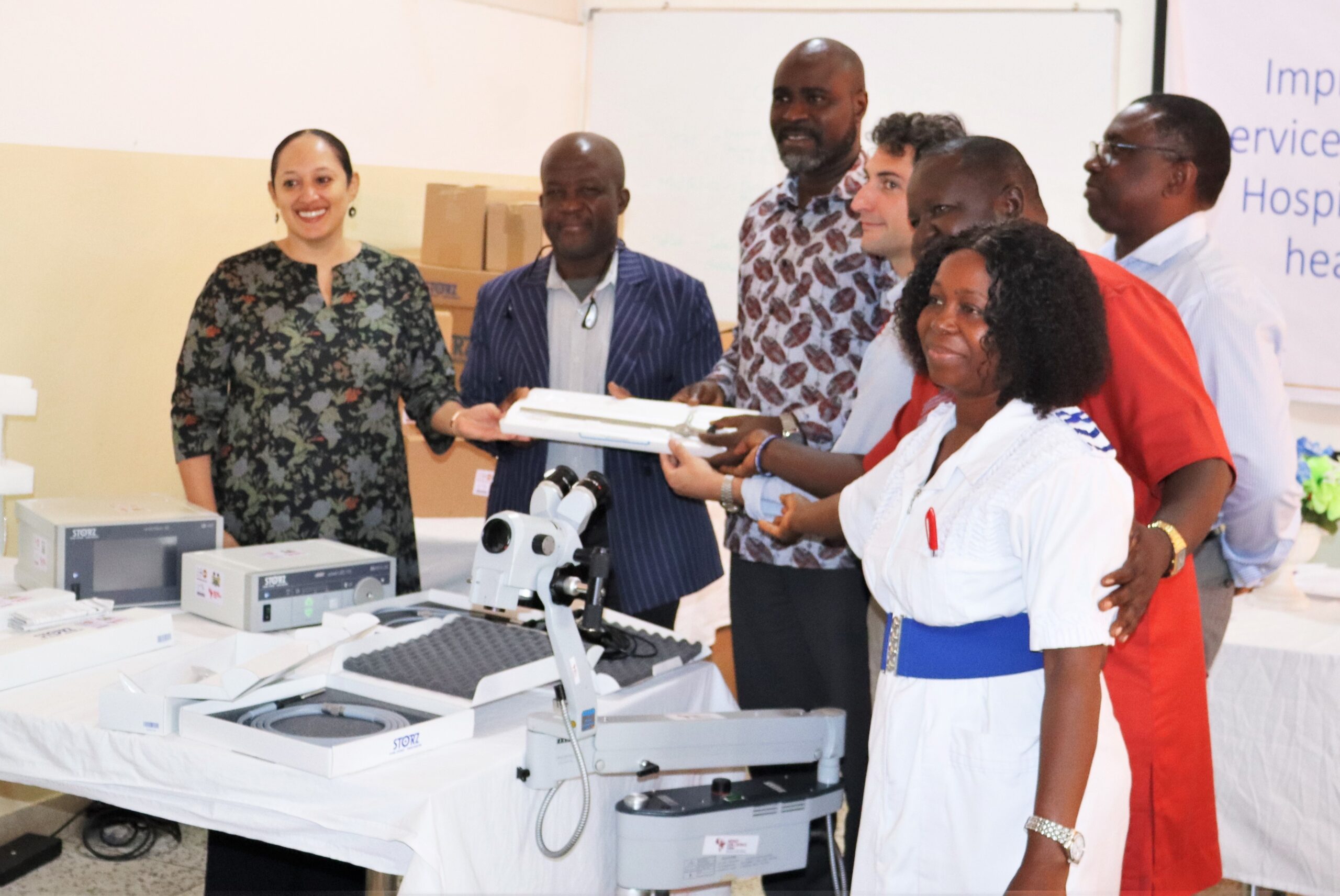The United Nations Population Fund (UNFPA), in partnership with Doctors with Africa CUAMM, has donated equipment vital to the training of Obstetricians and Gynaecologists to the Princess Christian Maternity Hospital (PCMH) and the University of Sierra Leone Teaching Hospitals Complex.
The state-of-the-art equipment, which included laparoscopy and colposcopy machines, were provided with support from the Italian Agency for Development Cooperation.
Since 2020, UNFPA has partnered with Doctors with Africa CUAMM and in late 2022, with the Italian Agency for Development Cooperation to support PCMH in improving the quality of Emergency Obstetrics and New-born Care services.
The partnership is aimed at increasing availability of essential medical equipment, drugs and consumables, providing support to the training of residents in Obstetrics and Gynaecology, and strengthening capacity to respond to obstetric emergencies and reduce maternal deaths.
Speaking during the handover ceremony, UNFPA Country Representative Ms. Nadia Rasheed said the support to the hospital and the University of Sierra Leone Post Graduate Training Program is in recognition of the crucial role both institutions play in improving quality of care and in saving the lives of women and girls.
“We believe that this donation will make a valuable contribution to improving the quality of training of health personnel, as well as to advancing life-saving reproductive health services for women and girls for many years to come.” Ms. Rasheed added.
The partnership with CUAMM, she noted, also complemented other areas of UNFPA’s long-standing support to the hospital including the establishment of High Dependency Units to care for pregnant and postnatal women with life-threatening complications, through the UK funded Saving Lives in Sierra Leone programme.
In his remarks the Deputy Chief Medical Officer, Dr Mustapha Kabba, expressed appreciation to UNFPA and CUAMM for the donation, and highlighted the progress that Sierra Leone had made in its commitment to improve maternal and newborn health and end preventable maternal deaths.
The equipment, he said, would help in undertaking timely diagnoses of gynaecological problems and ensure patients were provided with the quality of care they need, emphasizing that “apart from the training of doctors, there are many other advantages tied to this new equipment.”
Also making a statement the hospital’s Medical Superintendent, Dr Foday Janneh, said PCMH had contributed immensely to the reduction of maternal and neonatal morbidity and mortality. “We will achieve more with the availability of much-needed equipment which will increase our accuracy in clinical diagnosis and management, shorten the time of intervention and stay of patients in the facility and above all will help reduce critical workload and improve patient’s safety,” Dr Janneh said.
On behalf of Doctors with Africa CUAMM, Michele Soci, Country Manager, said that CUAMM was glad to have arrived at this important step in its activities at the PCMH because they strongly believed in the relevance of the training of medical staff, one of several ways of strengthening the country’s health system and improving provision of services for pregnant women.
In addition to the support provided with CUAMM, UNFPA and the Ministry of Health and Sanitation have also set up cervical cancer screening and treatment Services at PCMH with support from the Government of China, and improvement of infection prevention and control practices with funding from the Government of Japan.


